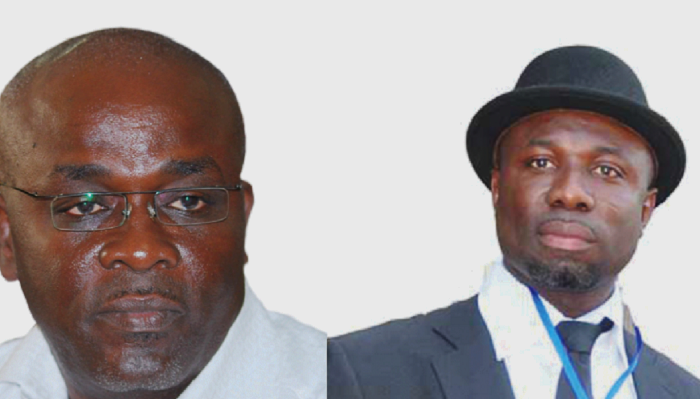
Address basic education problems to deal with poor WASSCE results — Teacher unions
The two main teacher unions, the Ghana National Association of Teachers (GNAT) and the National Association of Graduate Teachers (NAGRAT), say addressing problems at the basic education level is key to solving the problem of poor performance of students in the West African Senior School Certificate Examination (WASSCE).
According to them, once the problems were resolved and the right concepts developed for the various subjects for the understanding of pupils at the basic level, they could carry them on to the second-cycle level and excel.
They said if the fundamentals were wrong, students could be kept in senior high school (SHS) for many years and they would still perform abysmally in the WASSCE.
The General-Secretary of GNAT, Mr David Ofori Acheampong, and the President of NAGRAT, Mr Christian Addai-Poku, said this in separate interviews with the Daily Graphic yesterday.
They were reacting to the performance of candidates in the WASSCE.
Performance of candidates
The West African Examinations Council (WAEC), in releasing the results of this year’s WASSCE, outlined the performance of candidates in the four core subjects of English Language, Mathematics, Integrated Science and Social Studies.
In English Language, 125,065 (53.19%) obtained Al-C6; 59,725 (25.40%) obtained D7-E8, while 46,595 (19.82%) had F9.
In Mathematics, 77,108 (32.83%) obtained Al-C6; 65,007 (27.68%) obtained D7-E8, while 89,477 (38.10%) had F9.
Concerning Integrated Science, 113,933 (48.48%) obtained Al-C6; 75,938 (32.32%) obtained D7-E8, with 42,519 (18.09%) getting F9, while in Social Studies, 129,058 (54.93%) obtained Al-C6; 53,824 (22.91 %) obtained D7-E8, while 49,198 (20.94%) had F9.
The council said the general performance for 2016 was a significant improvement over that of 2015.
But both GNAT and NAGRAT said although the results were unsatisfactory and unfortunate, all hope was not lost.
GNAT
“Generally I think the results are still not satisfactory; we would have wished that within the main core subject areas the level of percentage of passes were higher,” Mr Acheampong said, and attributed the slight increase in performance over last year’s to the number of workshops organised last year for teachers to sharpen their skills.
He said that lent credence to the fact that once teachers were trained and retrained, they would deliver.
“Going forward, we should begin to look at the basic level of the educational system. Subjects such as Mathematics, English Language, Science and the rest have certain concepts that must be built into the children right from the beginning of their studies, so that as they go on they will continue to expand their knowledge around those concepts,” he noted.
Unfortunately, at the basic level, he said, much attention was not paid to the teaching of Maths, Science and others because there were not many qualified teachers to teach those subjects, as most of them were generalist teachers.
NAGRAT
For his part, Mr Addai-Poku indicated that in the medium to short term, the government needed to invest more in education to reverse the trend of poor performance in examinations generally.
That, he said, included the provision of standardised infrastructure, teaching and learning materials, building the capacity of teachers, improving the school environment and giving teachers what was due them at the appropriate time.
“But the bigger issue is that the nation would have to look at our resources and allocation and plan our development very well. This is because education thrives on development — when there are resources, education thrives, and when there is poverty, education suffers,” he said.
Mr Addai-Poku said the physiological and psychological position of children needed to be looked at, since children who were not, for instance, psychologically sound and were bedevilled with problems and challenges were not likely to concentrate or do well in school.
He said very often teachers in the SHS complained about the kind of students at that level because certain concepts they should have learnt at the basic level before entering SHS were not known to them, thereby making teachers’ work difficult.
GES
The Head of the Public Relations Unit of the Ghana Education Service (GES), Rev. Jonathan Bettey, commended WAEC for the introduction of the item deferential profile software to detect the activities of cheats, since that contributed greatly to showing the actual performance of candidates.
He said although there had been an improvement over last year’s performance, everyone had a role to play in ensuring that candidates performed well in the examination.
“Every stakeholder — parents, teachers, the government and students themselves — has a role to play,” he said, and indicated that the duration issue was a non-starter, as there were others who had done it in three years and had performed well.
Out of the 274,262 candidates who took the examination, 1,576 had their subject results cancelled, while 598 had their entire results cancelled, with 13 candidates having their entire results cancelled and been barred from taking any of the council’s examinations for two years, mainly for impersonation during the examination.
